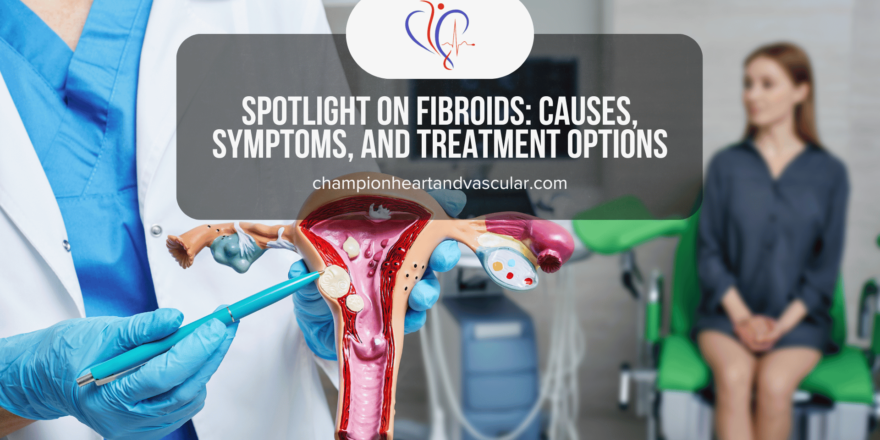Introduction: The Evolution of Aortic Valve Treatment
Aortic valve disease, including aortic stenosis and aortic regurgitation, is one of the most common and serious cardiovascular conditions affecting millions worldwide. Historically, treatment options were limited to open-heart surgery and medication-based symptom management, but today, groundbreaking advancements in technology, surgical techniques, and artificial intelligence (AI) have revolutionized aortic valve treatment.
At Champion Health System, we specialize in providing the latest, most advanced diagnostic and treatment options for aortic valve disease, ensuring minimally invasive, highly effective, and patient-focused care.
This blog will cover the latest advancements in aortic valve treatment, including:
✔ Transcatheter Aortic Valve Replacement (TAVR)
✔ Next-generation valve materials and biocompatibility
✔ AI-powered diagnostics and robotics in heart surgery
✔ Regenerative medicine and bioengineered heart valves
✔ Future trends in aortic valve repair and replacement
Understanding Aortic Valve Disease
The aortic valve is responsible for regulating blood flow from the left ventricle into the aorta, ensuring oxygen-rich blood circulates throughout the body. Any dysfunction in the aortic valve can lead to serious heart complications, including heart failure, arrhythmias, and reduced circulation.
Common Aortic Valve Disorders
✔ Aortic Stenosis – A narrowing of the aortic valve, restricting blood flow.
✔ Aortic Regurgitation – The valve fails to close properly, causing blood to leak back into the heart.
✔ Bicuspid Aortic Valve Disease – A congenital condition where the valve has two cusps instead of three, leading to early deterioration.
1. Transcatheter Aortic Valve Replacement (TAVR): The Game-Changer
TAVR has revolutionized the field of aortic valve replacement, offering a less invasive alternative to open-heart surgery for patients suffering from severe aortic stenosis.
How TAVR Works
- A catheter is inserted through the femoral artery (in the groin) or an alternative access point.
- The artificial valve is guided to the heart and deployed within the diseased valve.
- The new valve expands, pushing the old valve aside, restoring normal blood flow.
Benefits of TAVR Over Traditional Surgery
✔ Minimally invasive – No open-heart surgery required.
✔ Faster recovery – Most patients go home within 48 hours.
✔ Lower risk of complications – Reduced risk of infection, bleeding, and stroke.
✔ Improved life expectancy – Proven to extend the lifespan of high-risk and elderly patients.
TAVR was initially approved only for high-risk patients, but due to its success and advancements in valve technology, it is now widely available for intermediate and even low-risk patients.
2. Next-Generation Aortic Valves: Materials and Biocompatibility
Traditional vs. Modern Valve Replacements
- Mechanical Valves – Long-lasting but require lifelong blood thinners.
- Biological Valves (Tissue Valves) – Made from cow or pig tissue, but may wear out faster.
Recent innovations have led to the development of advanced biocompatible materials that improve durability and performance.
Innovative Valve Technologies
✔ Polymer-Based Valves – Mimic natural tissue, last longer, and do not require blood thinners.
✔ 3D-Printed Aortic Valves – Custom-built using patient-specific imaging, ensuring better fit and function.
✔ Self-Healing Valves – Bioengineered with regenerative properties to repair minor damage.
These advancements are enhancing the longevity of valve replacements, reducing the need for repeat surgeries.
3. AI-Powered Diagnostics and Robotics in Heart Surgery
Artificial Intelligence (AI) and robotic-assisted procedures are transforming how aortic valve disease is diagnosed and treated.
AI in Aortic Valve Disease Diagnosis
✔ AI-powered Echocardiograms – Faster, more accurate detection of valve abnormalities.
✔ Predictive Modeling – AI analyzes patient data to recommend the best treatment plan.
✔ Virtual Surgery Planning – AI simulates TAVR and surgical procedures before actual intervention.
Robotic-Assisted Aortic Valve Surgery
Robotic systems allow surgeons to perform highly complex procedures with greater precision, reducing human error and improving patient outcomes.
✔ Minimally invasive approach – Reduces surgical trauma.
✔ More precise valve placement – Improves long-term function.
✔ Lower risk of complications – Shorter hospital stays and fewer complications.
AI and robotics are reshaping the future of aortic valve surgery, making procedures safer and more effective.
4. Regenerative Medicine and Bioengineered Heart Valves
One of the most groundbreaking developments in cardiovascular care is the use of stem cells and regenerative medicine to repair and replace damaged heart valves.
Current Advancements in Regenerative Medicine
✔ Stem Cell Therapy – Uses patient-derived cells to help regenerate damaged heart tissue.
✔ Tissue-Engineered Heart Valves – Grown using biodegradable scaffolds, allowing the body to naturally integrate the new valve.
✔ Gene Editing (CRISPR) – May allow future treatments to prevent valve calcification and disease progression.
These advancements hold great potential for younger patients, reducing the need for artificial valve replacements in the future.
5. Future Trends in Aortic Valve Repair and Replacement
Emerging Innovations on the Horizon
✔ Smart Valves with Sensors – Monitor heart function in real-time and send data to doctors.
✔ Personalized Medicine – Treatments tailored to genetic profiles and lifestyle factors.
✔ Non-Surgical Aortic Valve Repair – Techniques that could restore valve function without replacement.
At Champion Health System, we stay at the forefront of these advancements, integrating state-of-the-art treatments to ensure the best outcomes for our patients.
Champion Health System: Leading the Way in Aortic Valve Care
Why Choose Us for Aortic Valve Treatment?
✔ Minimally invasive procedures like TAVR for faster recovery.
✔ AI-driven diagnostics for precision treatment planning.
✔ Top cardiovascular specialists with years of experience.
✔ Access to cutting-edge research and clinical trials.
✔ Comprehensive post-procedure care to ensure long-term heart health.
If you or a loved one has aortic valve disease, don’t wait—schedule a consultation today and explore the best treatment options available.
Contact Us
- Henderson, NC – 511 Ruin Creek Rd Suite 106 | 919-339-4077
- Dunn, NC – 710 Erwin Rd | 910-304-1212
- Oxford, NC – 1614 Williamsboro St | 855-618-2311
- Website: championhealthsystem.com
- Email: [email protected]
Conclusion: The Future of Aortic Valve Treatment is Here
With advancements in TAVR, AI-driven diagnostics, regenerative medicine, and robotics, aortic valve treatment is becoming safer, more efficient, and highly personalized.
At Champion Health System, we are committed to bringing these innovations to our patients, ensuring that everyone receives the highest level of cardiac care.
Take control of your heart health today. Contact us to learn more about the latest advancements in aortic valve treatment.
Tags:
Aortic Valve Disease, TAVR, Minimally Invasive Heart Surgery, Aortic Stenosis, AI in Cardiology, Robotic Heart Surgery, Regenerative Medicine, Heart Valve Replacement, Champion Health System, Cardiovascular Innovations, Future of Heart Surgery




